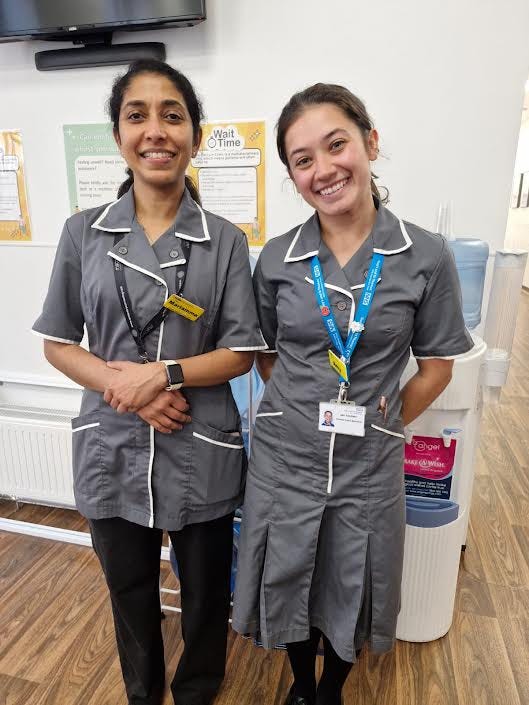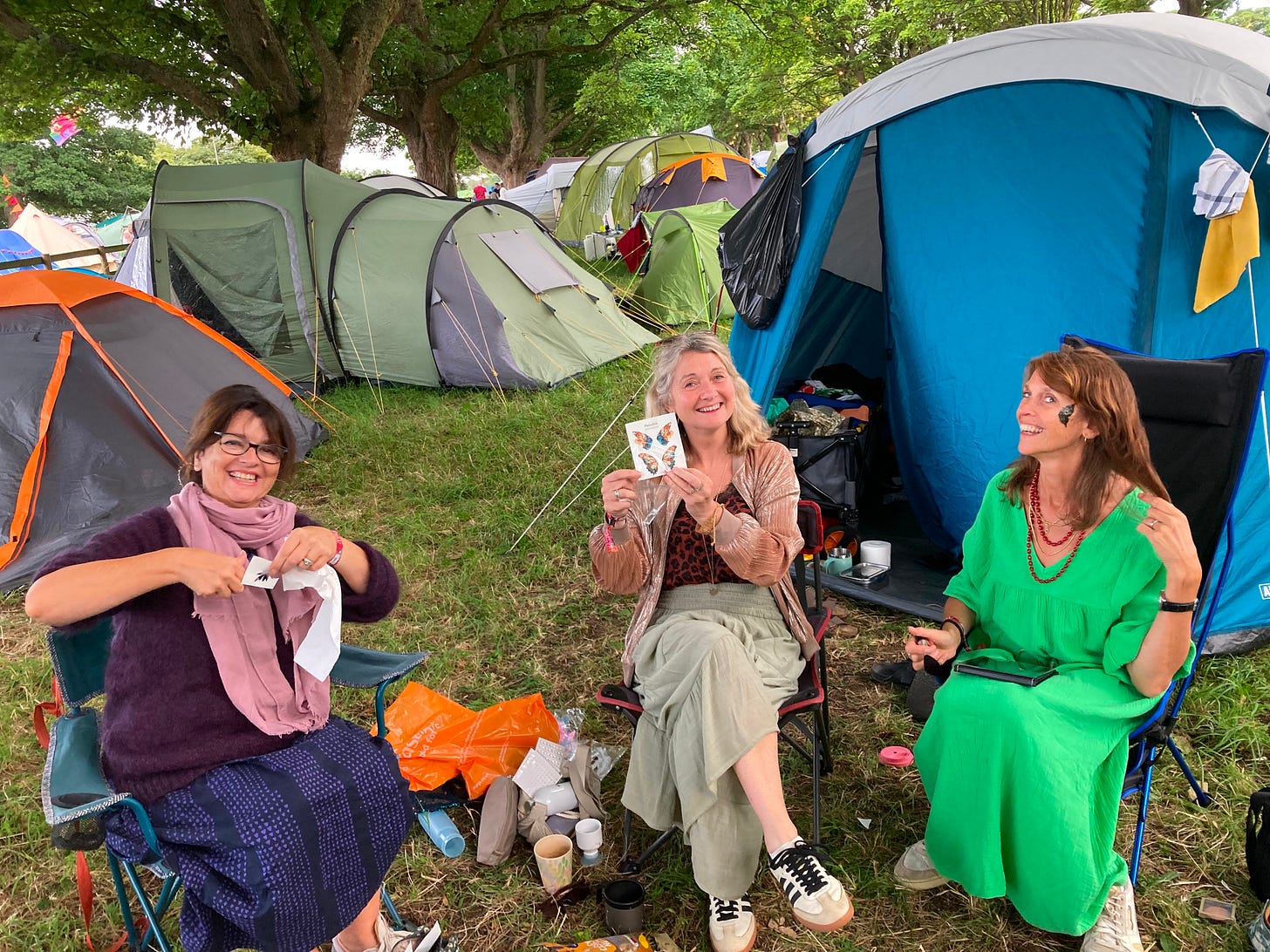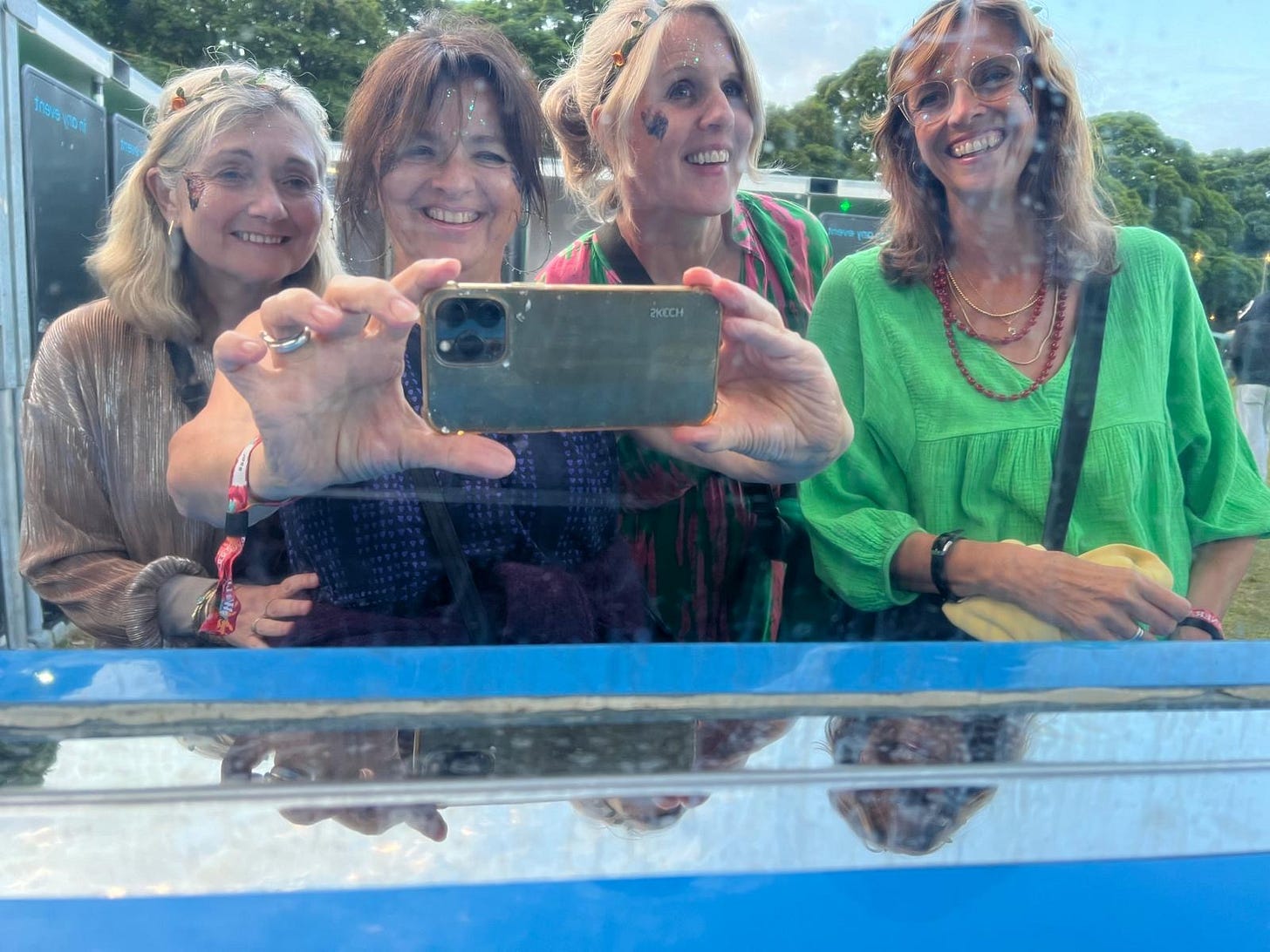How to build your breast cancer support squad - PART ONE
From medics and charities to friends and strangers....
Hello everyone - I hope you’re ok. I’m aware I’ve been a bit quiet on here in the past couple of weeks. It’s been hectic for a variety of reasons but here I am now so let’s crack on. And thank you to my new subscribers. It’s lovely to have you here.
One of the biggest lessons I’ve learnt in the wake of my breast cancer diagnosis and subsequent treatment is just how much support is available.
It takes a village to raise a child. It takes a village to look after and care for someone going through cancer, both physically and emotionally. But how do you find that village? And what if you’re someone who doesn’t like the sound of being in a village very much?
As I’ve said in my previous posts, everyone’s experiences will be different and there are a whole range of ways in which people will react and respond to their cancer diagnosis. Some may withdraw. Some may want to reach out and share what they’re going through with everyone they know plus the supermarket checkout person who has just given them a kind smile along with their bunch of bananas. We are all different.
My reaction, once I’d told my family, a few close friends and begun to get my head around what was going to be coming further down the tracks, (mastectomy, radiotherapy, need for chemo to be decided post surgery), was to seek out, accept and say yes to the vast array of help available even when sometimes I had my doubts and preconceptions about how helpful some of the ‘support’ would actually be.
A ‘meet-up’ session for breast cancer patients at my local hospital? What if I meet really unwell women whose cancer has spread and hear things I don’t want to hear?
A stranger talking to me on the phone arranged by a charity? How is that going to work and what if I don’t gel with the stranger?
An EFT session? What the hell is EFT?
It’s been a huge learning curve but I can honestly say that everything I’ve sought out or been offered has been beneficial in either a big or tiny way and even some of the support I had initial reservations about equipped me with insightful gems. For example it was a casual conversation at that hospital meet-up group, (the one I was slightly scared about going to), where someone mentioned the book Reconstruction. Fast forward a couple of weeks and that book which wasn’t previously on my radar, became and continues to be my breast cancer go-to manual, my friend and comfort blanket. Was it worth going to that session? Yes it was for that alone.
So if you are going through breast cancer, or know someone who is, please be aware of just how much support is out there, have an open mind about what may or may not help and dip in and out of it as and when you need it.
Below is Part One of who has formed my ‘Support Squad’…such a big squad it needs two parts! I am sharing it in the hope that some of it may help you too or someone you know or love.
MEET THE SQUAD….
BREAST CARE NURSES
For me, these amazing women, (they have all been women in my case), were and continue to be the glue that holds the whole messy, fragile and shifting thing together. They are the ones who are often present at your meetings with consultants or oncologists, who can explain, reassure and demystify, (when, in my case a consultant with poor people skills strikes fear into you again), they are available to answer your questions, chase up scan results, are across your care, appointments and medications. My breast care nurses have and continue to be a phone call away and have been on hand to answer a whole range of my spiralling questions such as; Why is my tumour being sent to America for analysis? Why has this angry rash suddenly appeared where I had radiotherapy a year ago? Are these antidepressants suitable for me to take alongside Tamoxifen?

FAMILY AND FRIENDS - WHO’S GOOD AT WHAT?
I’m lucky to have a very supportive, close family and lots of amazing friends. I have also come to learn that they are helpful in a vast array of different ways. Identifying who can fill your cup, when and in what ways is good.
Friends who are great listeners - who will really listen to what is going on for you? Who will know the helpful things to say when you’re crumbling, tearful and in emotional freefall or need some firm and strong bolstering?
Friends who are doers. Who will step in to help practically, whether it’s picking up some groceries for your post-surgery recovery, taking your dog for a walk or swooping in to give your child a lift to their weekly football training.
Friends who are present. The ones who will make themselves available to accompany you to a radiotherapy appointment, a hospital meeting, a scary new MRI scan, the ones who say, ‘How are you feeling today? I’m going for a walk this afternoon. Do you want to come with me?’
Friends who are entertainers and distractors. The ones who will always put a smile on your face, who know exactly what links to send you so you can watch, read, listen to something that brings you a little bit of joy and light or welcome relief.
Friends who check-in. The ones who send supportive WhatsApp messages, the ‘thinking of you today’ notes when they know there is another dreaded appointment or test result on the horizon. These friends do not require a response, they are making you know that you matter.
Know your friends. Know their strengths. Lean on them. Welcome them into your Support Squad.
WOMEN WHO HAVE EXPERIENCED BREAST CANCER THEMSELVES
One in seven women in the UK will develop breast cancer in their lifetime. That’s a lot of women which means the likelihood is you know someone who’s gone or is going through it. From my children’s London primary school alone I knew of six other mums who had gone through breast cancer, three of them diagnosed a couple of years prior to me, others many years ago. I wanted to hear first-hand about some of their experiences, the choices they made, how some of the treatments and surgeries felt.
They were so generous in chatting to me either on the phone or over a coffee. They talked about their recoveries, their anxieties, they recommended books, instagram accounts, they explained why they chose to have counselling or why they didn’t. Why they wanted implants, why they didn’t. What became increasingly clear was that no two cases are the same - different types of breast cancer, different grades, different surgeries and different ways of handling the challenges.

Friends are great but there is another layer and different kind of comfort and support talking to women who have gone through breast cancer themselves, who know the heart-pounding, stomach-churning dread of being in a waiting room before another ultrasound, who know exactly why there are seemingly innocuous events that will be extremely triggering. These women continue to form a very important part of my Support Squad. So my message is don’t be scared to reach out to women, friends of friends, acquaintances, strangers on support forums who have gone through it but do remember their experiences and required treatments may be very different to your own.
THE ‘SOMEONE LIKE ME’ SCHEME
Speaking to other women who have gone through breast cancer brings me onto this next one. Leafing through one of the many booklets I was given at the hospital by Breast Cancer Now I stumbled across details of their ‘Someone Like Me’ scheme. It’s a simple idea in which you are matched with a trained volunteer who has had a similar breast cancer diagnosis to you and who you can chat to on the phone.
I have to admit I had low initial expectations and was slightly apprehensive. What if I don’t gel with the volunteer they match me with? How can talking to a stranger I’m never going to see or meet help me?
I decided to give it a go anyway as a distraction more than anything else, (those weeks of limbo between diagnosis and waiting for a surgery date were torturous). It turned out to be one of the very best choices I made. I could write a whole separate post on the ways in which the amazing volunteer I was paired with helped me.
A similar age to me, a mum of teenagers like me, the same positive outlook on life, the same type of breast cancer - lobular, grade 2 - the same DIEP flap reconstructive surgery but 18 months further down the line, she very quickly became my go-to rock and we scheduled calls as and when I needed them; weeks after my diagnosis, waiting for scan results, days before my radiotherapy began.
She was a super-calm, reassuring and wonderful person to talk to and a great listener who not only lifted me but crucially armed me with positivity. I only know her first name and that she lives hundreds of miles away from me in the UK but I would like to take this opportunity to thank her and to thank Breast Cancer Now for matching us so beautifully.
This is another perfect example of something I almost dismissed unsure it would benefit me. How wrong I was. That wonderful volunteer quickly became a key and crucial member of my Support Squad.
SESSIONS WITH A CANCER PSYCHOLOGIST
For many people and definitely for me, the psychological impact and mental stress of cancer has been far greater than the physical impact, (worth noting, I didn’t have to have chemo). Seeing just how anxious I was becoming following my shock diagnosis, one of the aforementioned breast care nurses at Kings College Hospital suggested I would benefit from sessions with a Cancer Psychologists at the hospital. I said yes please and had eight face-to-face eight sessions provided by the NHS which I found hugely beneficial.
Not only did the psychologist give me some great coping strategies to chuck into my cancer toolkit, (which I continue to use as and when needed), but just being out of the house - Zoom was an option too - talking to her and airing my thoughts, my fears, my milestones and minor achievements was so helpful. My psychologist became a very important part of my Support Squad and the ripple effect of those sessions continues to benefit me. My advice would be to find out if your hospital can offer similar psychological support.
So there we have it - from nurses, friends, psychologists and volunteers- over the months I have come to know exactly what and who will help me best at any given time on this rocky old road that is littered with potholes. This is only half the squad. I told you it was a big Squad! In my next post I’ll share the other half.
Next time: How To Build Your Breast Cancer Support Squad: PART TWO
If you have found this post helpful or enjoyed reading it, please do share it, press the little heart button below to like it, (It helps more people find it), restack it or forward to anyone you think might find it useful.
And if you’d like all of my future posts delivered straight to your inbox then consider subscribing and you won’t need to check back here.
Thank you for reading x






